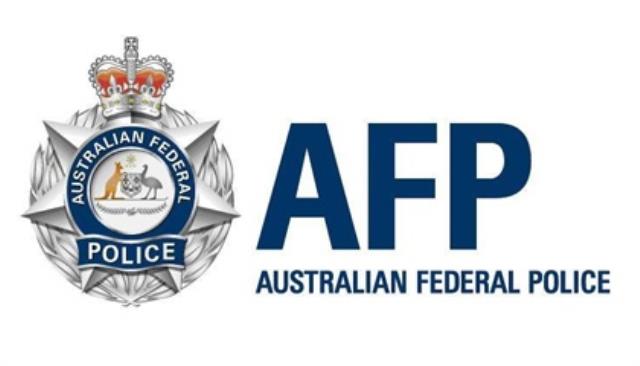Could Australia flip the table on Meta with a tech tax?

- by Admin
- October 24, 2024
Legend has it not even the writers of the mid-2000s TV show “Lost” knew how the story would end.
The epic sci-fi-drama about the survivors of a mysterious plane crash was renowned for a teetering list of seemingly irrevocable paradoxes.
As the plot thickened beyond all reason, even the most devout fans began to doubt the saga could be brought to any kind of satisfying conclusion.
It can be hard for screenwriters to admit when they don’t have a plan, and the same is true for political leaders.
Over the past six months, the federal government has seemed at times to lack a plan to make Meta pay for Australian news.
The company announced in March it would not renew funding deals worth tens of millions of dollars to a handful of major news outlets, which it had reluctantly agreed to in 2021 under the Coalition’s News Media Bargaining Code, following a news black out it implemented during negotiations with the government — a demonstration of the damage it could do.
Meta’s refusal to pay up now, and its apparent willingness to take the nuclear option of removing news from its platform completely if the government sought to force it, left the government with a severe and six-month-long case of writers’ block.
Meta has previously pulled news off its platforms altogether. (Reuters: Robert Galbraith )
This week though, in welcome news for the plot-line, there are signs of a breakthrough in the form of a “tech tax”.
On Monday, the parliament’s joint select committee on social media and Australian society recommended the government consider a “digital platform levy” as a way to break the stalemate.
Notably, the idea emerged from a Labor-led committee — innately more likely to be aligned with the government’s wishes — and perhaps unsurprisingly, the government has said it’s considering the idea among “a range of options”.
A tech tax is still a long way from becoming official policy, but coming as it does after a six-month-long collective policy shrug, it’s worth paying attention to.
The nightmare game of ‘would-you-rather’ that brought us here
When Meta pulled its funding from Australian news outlets in March, the government was left with a choice: it could live with the humiliation of letting the company walk away, as well as the fury of cash-poor news outlets, or it could use its powers under the Coalition’s News Media Bargaining Code to try to force one of the world’s biggest tech giants to pay up — if only it were that simple.
In the months that followed, the government quietly got its paperwork in order to “designate” Meta — a mechanism within the code which would force the company back to the bargaining table with news outlets, including the ABC.
But despite encouragement from media bosses and the Opposition, the other shoe never dropped.
The government didn’t explain why, but it may have been keen to avoid a fate similar to Canada’s, where Meta responded to similar efforts by pulling news off its local platform altogether, perhaps permanently.
The company had clearly signalled its willingness to do the same in Australia, with Meta’s regional policy chief Mia Garlick telling the committee back in June, “all options are on the table”, should the government move to designate.
Facebook’s regional director for Australia Mia Garlick and global head of safety Antigone Davis spoke to the parliamentary committee on social media. (ABC News: Matt Roberts)
And so a probable, if disastrous, endgame for the dispute began to take shape: if Meta removed news from its platforms, there would be nothing to charge it for.
To make matters worse, policy experts warned inflammatory disinformation would likely fill the news-shaped hole on Instagram and Facebook.
Not unlike the long-suffering characters on Lost, Australia would have been off the map and in uncharted territory, which is not a destination any government willingly books flights for this close to an election.
Historically, a new tax wouldn’t have been high on the bucket list either, especially for a Labor Government at this point in the electoral cycle, but as public anger towards the tech giants charts new heights, there may be room for an exception this time.
What would a tech tax look like?
Australia would be far from the first country to introduce a tech tax.
France, the UK, Italy, Spain, Austria, Portugal, Turkey, India, Kenya, Tanzania, Nepal and Kyrgyzstan all have similar arrangements in place, and a further 19 countries are considering joining them, according to the EU Tax Observatory
If overseas examples are any indication, a digital services levy might reap much more than the roughly $200 million the News Media Bargaining Code has yielded so far, and it may apply to a much longer list of companies than just Google and Meta.
Crucially, it would be a tax on more than just news – and therefore harder for companies to avoid.
The committee also made a recommendation to devise a system for distributing any revenue that was collected from tech companies. (Getty/ Fritz Jorgensen)
The social media committee’s interim report is more about the big picture than the detail, but there are two recommendations that stand out.
Beyond the obvious one, that Australia consider a tech tax of its own, there’s also a recommendation to devise a system for distributing any revenue that’s collected.
Specifically, the committee is keen for any money to flow further than the big end of the news industry.
It recommends that the funds should be aimed at “ensuring the sustainability of small, independent and digital-only publishers, as well as those operating in… rural, regional and remote areas”.
There are plenty of tough questions yet to answer as to how a tax would be applied and the spoils divided but we wouldn’t be the first country asking them.
And while the federal government is yet to commit to a tech tax, it’s clearly changed its tune on the status quo policy — the News Media Bargaining Code.
“While the code achieved some short-term deals, it is clear in 2024 that circumstances are very different”, a spokesperson for the government said in a statement.
In a dissenting report issued alongside the committee’s on Monday, the Coalition fought back against that idea.
“The report recommendations on this topic are based on the claim that the News Media Bargaining Code is now no longer fit for purpose.
“The Coalition committee members strongly reject this assertion.”
For now, the government has promised nothing more than to consider a tech tax, but after six months of plot stagnation, we might be one episode closer to some kind of a series finale.
The Latest News
-
December 23, 2024Freedom Boat Club Announces its 10th Australian Location with its Newest Location Offering Direct Access to the Iconic Brisbane River – Marine Business News
-
December 23, 2024‘I felt horrible’: How Brett Lee went from an ill-fated threat to Test stardom in four balls
-
December 23, 2024QuickWin Casino: Your Fast-Track to Winning in Australia – Fantasy Football 247 – Premier League Tips
-
December 23, 2024China and India Are the Biggest Tourism Market for Victoria As This Australian City Attracts International Tourists with Sports Tourism – Travel And Tour World
-
December 23, 2024Christmas comes early for several Aussies after last-minute dash for tour status – Australian Golf Digest





